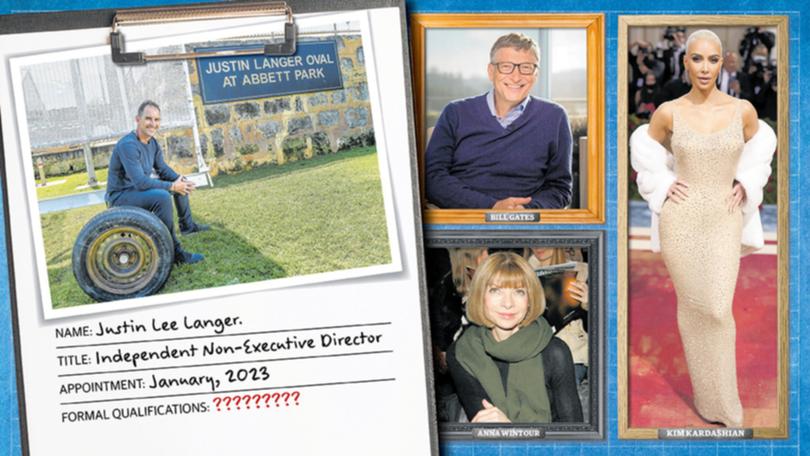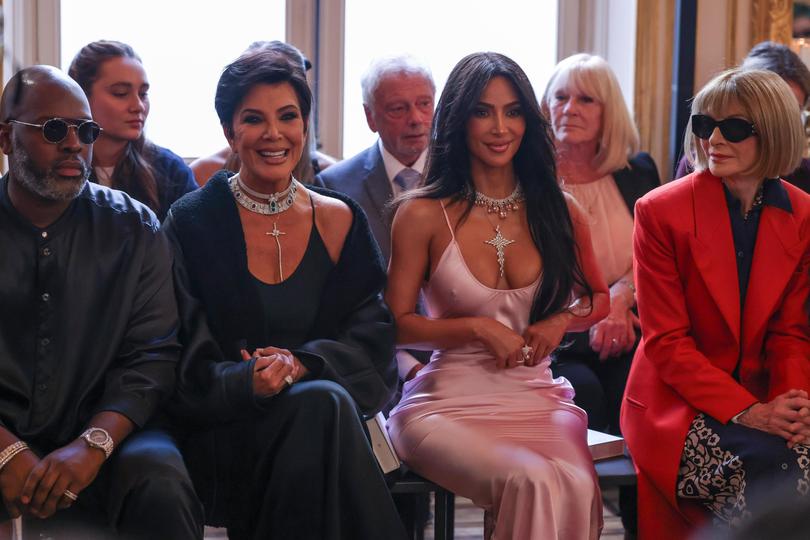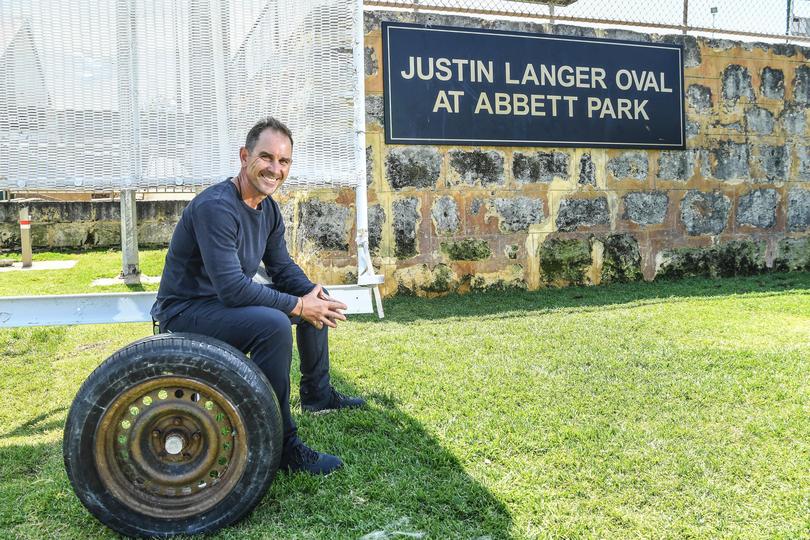Justin Langer: Should I feel unqualified if I don’t have a university degree?
I recently felt awkward that I hadn’t finished university, but then I realised I’m like scores of others who have walked a different path.

Name: Justin Lee Langer.
Title: Independent Non-Executive Director
Appointment: January 2023
Sign up to The Nightly's newsletters.
Get the first look at the digital newspaper, curated daily stories and breaking headlines delivered to your inbox.
By continuing you agree to our Terms and Privacy Policy.Formal Qualifications: . . .
Uh oh. For a moment, I felt sick in the guts. I knew this would come back and haunt me one day.
What can I write, what can I write? Aquinas College Year 12? Is that good enough? Surely not.
One year of a Bachelor of Arts Degree at UWA? That doesn’t cut it. How would these look, when every other person filling out their biography for an Annual Directors’ Report, would probably have a list of formal qualifications as long as their arm.
Like all those initials on the door of any doctor I’ve visited over the years? I’ve got nothing like that.
Or those certificates on the wall of my accountant with all her university qualifications scrawled all over it?
Wow, I’m so out of my depth here . . .
This was the scenario I faced last week when I received an email confirming some of the details regarding my board biography.
Derek, the Group Financial Controller and Company Secretary, wrote: “This is your Bio for the Directors’ Report. Could you advise any formal qualifications please and whether you would like any changes made to your Bio for FY23?”
You know those moments when you feel way out of your depth? When you start worrying about what others might think of you if you don’t live up to, or match expectations.
That dreaded feeling of insignificance and the fear of not being good enough.
If it wasn’t enough in my previous life, when people asked me what I do for a living I would say, “I play cricket.”
“Yes, that’s nice, but what do you do for a real job? How do you make a living?”
Having shaken that stigma off, I was again faced with the internal commotion of “how can you be on board without having been to university?”
Fighting the self-doubts, I thought long and hard about how to answer the qualifications question, and what I came up with was a single word.
That word?
“Life.” (And a smiling emoji).
I know media magnates, mining giants, sporting superstars — and have friends from the armed forces — who have followed different paths to make it to the top.
Often the university of life is as powerful as anything we can learn in a textbook.
Not for one-second am I undermining the benefits, experiences or achievements of formal education. In fact, the opposite. Hat’s off and total respect to all those people out there, past and present, who have worked hard to earn their degrees, diplomas, and MBAs.
One hundred per cent respect.
But to those like me, without any formal qualifications, I say well done and never underestimate the lessons that are learned being in the cauldron of life.
I met a leader on a mine site last week who left school at the age of 13. His story is incredibly inspiring.
Despite having exited the education system in Year Eight — and at such a tender young age — his understanding of the industry, and his no-fuss, respectful approach to people was refreshingly honest.
I know media magnates, mining giants, sporting superstars — and have friends from the armed forces — who have followed different paths to make it to the top.

Famous billionaires and entertainment icons such as Bill Gates, Mark Zuckerberg, Steve Jobs, Richard Branson, Jay-Z, Kim Kardashian and Anna Wintour are just a handful of college dropouts who have made good of their lives.
Equally, I am friends with highly educated men and women who are doctors, lawyers, accountants, teachers and nurses who have become great success stories.
When I was 18, I was given some powerful advice from my next-door neighbour Ian Cavanagh.
He was at our house one day and we were discussing how my future was looking. You know, that chat about what are you going to do when you grow up?
I was in my first year at university studying an arts degree, but I knew my heart wasn’t really in it.
Going to uni from high school was the expected thing if you weren’t taking on an apprenticeship, a gap year or going straight into the workforce
Things haven’t really changed as I have found out through my kids.
Talking to Ian, he asked me a straight question: “What do you ACTUALLY want to do with your life?
As I explained: “I actually want to have a crack at being a professional cricket player. But 95 per cent of people advise me to get my degree first, just in case cricket doesn’t work out. And then play cricket after that.”
Ian then asked: “What does your heart tell you?”
“I want to play cricket,” I replied. “I always have and I want to give it my best shot.”
“Well, there’s your answer,” he said. “If you follow your heart and trust your instincts — and don’t worry about what other people think — you can’t go wrong.”
The truth was, I was petrified when I left university and boarded a plane for my first season in England. That trip was one of the steps I saw to navigating my desired path to professional cricket.

To most, this was a big risk with lots of “what if?” questions associated with it. What if it doesn’t work out? What if you don’t make it? What if you are wasting your time? What if you are taking steps backward in your professional career?
The questions kept coming, as did the fears. But as I have learned in life, I should never have worried so much.
If you are passionate about something, you tend to want to do more of it. The more you do, the better you get. And as you specialise in something, the more likely you are to get opportunities for performing in it. This applies to all skills and pursuits.
Along the way, you will make plenty of mistakes, and you’ll get knocked down and criticised, but that’s all part of the tumble-dryer fun of the “university of life”.
Everyone takes different paths, there is no one single path of success, and that is the cool thing about the uniqueness of every individual on this planet.
In a business meeting a few weeks ago, I heard an interesting strategy and philosophy on diversity and inclusion.
As we know, diversity and inclusion are about respecting and appreciating what makes people different in terms of age, gender, ethnicity, religion, disability, sexual orientation and education.
What was put to me was that diversity is not just about those attributes, but also about thinking, experience, upbringing and expertise. I thought that was a great perspective to look at things.
And it also put my mind at ease for worrying about not being able to compete in the formal qualification stakes.
